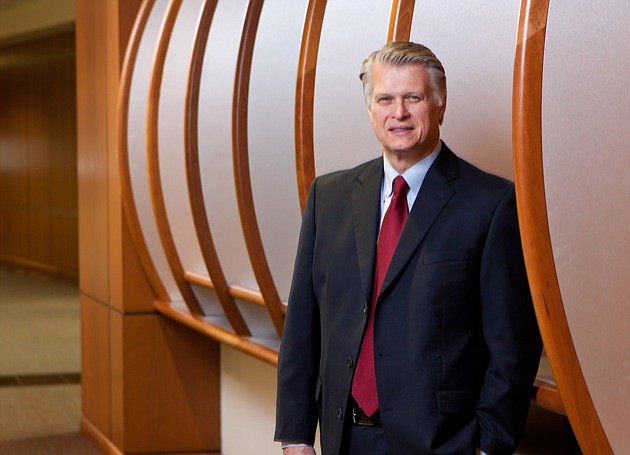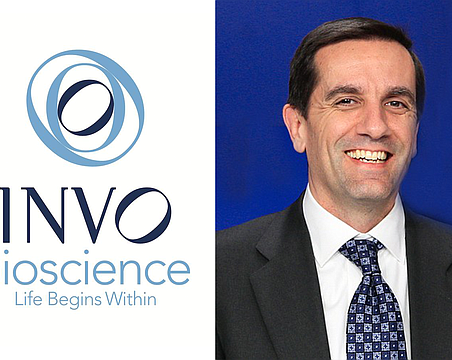REVIEW SUMMARY
What. Unemployment compensation tax increase
Issue. Bills coming due from borrowing from feds
Impact. Florida's economic recovery is in jeopardy.
By the numbers. Click here to review charts from the printed version of this article.
Florida businesses are staring at a 205% increase in unemployment compensation tax rates over the next two years that could undermine the fragile economic recover.
The minimum unemployment compensation (UC) tax rates are now expected to rise from $81 now to $256 per employee in 2014, according to a policy briefing given to legislators in December.
That's based in part on the wage base, to which the taxes apply, rising to $8,500 from $7,000 for a four-year period from 2012-2015. And it's also based on higher UC tax rates by both the state and feds.
High, long-lasting unemployment and extended unemployment benefits coupled with previous populist politics have contributed to the moment.
In 2008, employers paid just $63 per employee with $56 of that paid to the federal government. In 2012, the state portion of the UC tax will be $149, more than 2,000% higher than it was three years ago when it was about $7.
The biggest sticker shocks will occur this year and next year when the combined UC rates jumps from last year's $81 to $149 this year and then to $247 in 2012. The minimum rate rises slightly after that to $252 in 2013 before peaking at $256 in 2014.
“There's no magic bullet,” responded Florida House Speaker Dean Cannon, R-Winter Park, when asked in January if such high rates might derail the state's economic recovery and the governor's jobs goal or 700,000 jobs in seven years. “That is definitely a hazard and we're working on it,” Cannon says.
The state portion of the tax paid by employers covers unemployment benefits for unemployed Floridians. The federal tax pays for administering the program, job service programs, some extended unemployment benefits and advances to insolvent state trust funds.
Florida's trust fund balance fell to zero in Aug. 2009 and was then authorized to borrow up to $300 million a month from the feds to pay benefits. The outstanding balance of those loans stood at nearly $2.1 billion as of Jan. 26.
Florida has company. Thirty-two states are on the federal dole owing nearly $43 billion so far.
The sunshine state already owes $5.8 million in interest accrued just since Jan. 1, and is projected to have paid $252.3 million in interest when the loans are paid off in five years.
Unless the Legislature and Gov. Rick Scott can agree on a way to cover the cost — and that's being discussed — businesses will have to come up with the cash starting in June. That's when an estimated $61.4 million will be paid back with a $9.52 per employee UC tax surcharge for interest on the federal loans.
If there's any consolation, at one point the surcharge was expected to be $13 per employee.
“Catastrophic” numbers
The rate an employer pays in state unemployment compensation taxes is based on a formula that considers the business industry and an employer's experience over the most recent three years. In 2009, employers at the minimum rate paid $8.40 per employee.
That rate was set to rocket up to $100.30 beginning Jan. 1, 2010, until the Legislature stepped in last March at the urging of business groups led by the Florida Chamber of Commerce and the Florida Retail Federation.
Before the first quarterly payment was due in April, legislators passed a bill to disregard a factor that normally would raise the UC tax rates to rebuild the balance in the state trust fund. Gov. Charlie Crist quickly signed the bill into law.
As a result, the minimum rate in 2010 only went up to $25.20 per employee. But because of extensive benefit claims that come with the state's 12% unemployment rate, and an increase in the number of employers at the maximum rate of 5.4%, the new minimum rate effective Jan. 1, 2011 is an unexpectedly high $72.10 per employee.
“Wouldn't you almost call those numbers catastrophic?,” asks Dan Doyle, senior vice president of Bradenton-based retailer Bealls, Inc.
With 7,911 employees in 315 stores in Florida, Doyle estimates the higher rates will cost Bealls $1.2 million more this year than last, and another $2 million next year. Doyle says that's money taken away from capital that could otherwise be used for new stores and ultimately for hiring the workers to run the stores.
Doyle, who is also chairman of the Florida Retail Federation, says, “It's something that's absolutely very high on our radar. It's a priority for the retail federation to keep a close watch on it, and try to mitigate this as best as possible along with all the other industries.”
The unemployment compensation tax rate is designed to first increase for businesses where benefits are due to employees no longer on the payroll. The maximum rate crunches out to $378 per employee.
Once that rate is reached, any excess benefits that can't be recouped within the maximum rate are spread across all employers. These so-called “socialized costs” become one factor in an employer's tax rate along with the trust fund solvency factor and the experience rating.
From 2008 to 2011, the number of employers at the maximum rate nearly tripled to more than 89,000, while the number at the minimum rate has dropped from more than 261,000 to nearly 220,000.
Window manufacturer PGT Industries, headquartered in central Sarasota County, is typical of companies that once paid less than 1% in state UC tax, according to Brad West, the company's controller. But with large layoffs during the recession, PGT now pays the maximum rate of 5.4%. Due to lags in the rate calculations, recent hirings haven't yet helped to lower its rate, yet PGT will get hit with the new assessments.
There are now less than 466,000 employers in the state, down from nearly 503,000 in 2008, so fewer employers are bearing a bigger tax burden to cover benefits for 1.1 million unemployed Floridians.
So, with so many companies at the maximum rate, more socialized costs are getting passed on to companies with less than the maximum rate.
No good options
A legislative subcommittee chaired by Rep. Doug Holder, R-Sarasota, met Jan. 25 to consider some UC tax policy options. A possibility, says Holder, is that the state could pick up or defer the cost of the $61.4 million assessment. One option under consideration is to float a state bond at an interest rate less than what the state's paying the federal government.
The economic development and tourism subcommittee is also looking at how to reduce fraud in the system to make sure those receiving benefits are deserved. But Holder adds, “The main thing we are looking to do is giving unemployed Floridians ways to find a career and get back to work so they're not on government subsidies.”
Holder says the office of economic and demographic research is studying the issue and will have a report soon so legislators have a better handle on the economic and employment impacts of the higher UC tax rates.
Rick Harper, an economist at the University of West Florida, says he expects the higher rates to hurt job creation. “In the long run we need to live within our means,” he say, “but short term, we need to ensure that Florida families are protected against some of the worst outcomes and avoid penalizing new hiring. So we're between a rock and a hard place.”
Adam Babington, governmental affairs director of the Florida Chamber of Commerce, calls it, a significant issue for long-term costs. Babington believes Scott is looking hard at it now. “He's fully aware of the problem and intends to offer solutions as part of his budget rollout,” Babington says.
Members of the state's congressional delegation have also had calls from the Florida Chamber and coalition business groups, says Babington. “We've asked our congressional delegation to consider ways to help businesses with this in the state of Florida.”
Detert's bill tackles tax rate
Sen. Nancy Detert, R-Venice, filed a bill Feb. 3 to shift the unemployment compensation tax rates burden to those who use them more.
According to Detert, who is chairman of the commerce and tourism committee, Senate Bill 728 would cut taxes for 79% of all employers, but increases the maximum rate from 5.4% to 6.4%. Employers will be able to pay unemployment compensation taxes in installments during 2011 to 2014.
Detert's 40-page bill also makes changes in qualifying requirements for claimants and reforms the claims appeals process.






